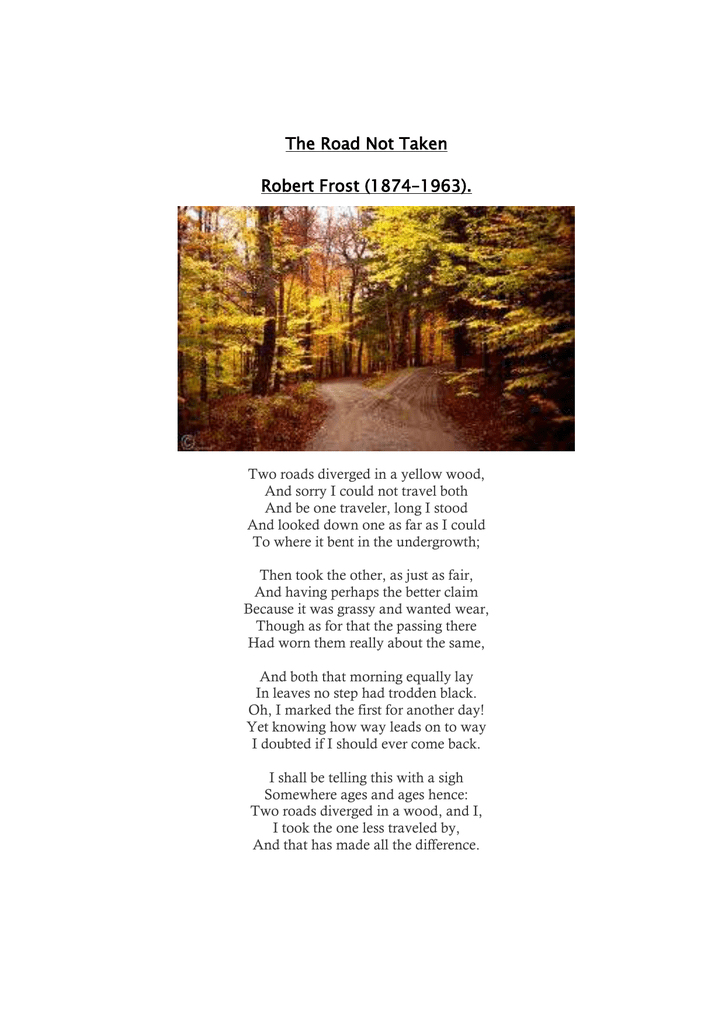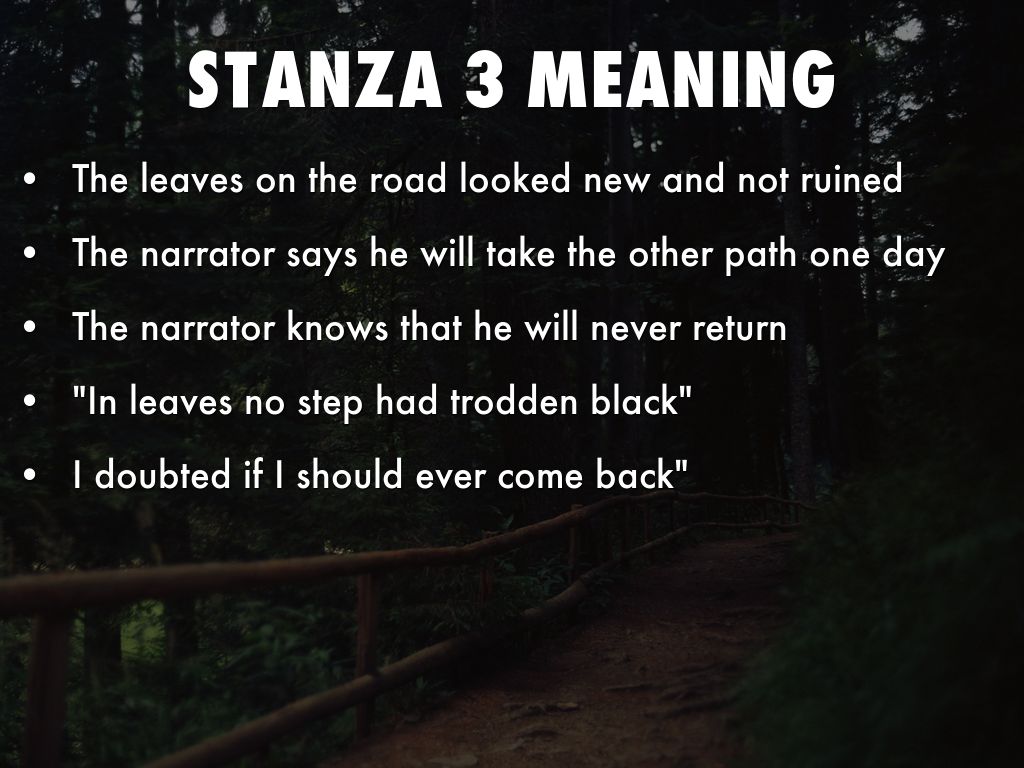


It can lead to a great discovery, success, prosperity, or happiness. However, the line “… And that has made all the difference” is not clear. The poet beautifully leaves this to the imagination of the readers Ambiguity is one of the striking features of Frost in poetry.

‘The Road Not Taken’ is more than a poem about someone trying to decide which road he’s going to take on a stroll through the woods. The two roads diverged in a yellow wood forest symbolizing a person’s life. The narrator’s choice about which road to take represents the different decisions we sometimes must make and how those decisions will affect the future. Think of the expression, ‘down the road’, that we often use to describe something that might happen months or even years from now, and you will see how Frost is making the connection between life and traveling. Our natural desire to know what will happen because of the decisions we make is in the first stanza of the poem:įrost captures the uncertainty about making decisions. The first significant thing about ‘The Road Not Taken’ is its title, which presumably refers to an unexercised option, something about which the speaker can only speculate. The traveler comes to a fork in a road through a ‘yellow wood’ and wishes he could somehow manage to ‘travel both’ routes he rejects that aspiration as impractical, however, at least for the day at hand. The road he selects is ‘the one less traveled by,’ suggesting the decision of an individualist, someone little not inclined to follow the crowd.Īlmost immediately, however, he seems to contradict his own judgment: “ Though as for that the passing there/ Had worn them really about the same.” The poet appears to imply that the decision is based on evidence that is, or comes close to being, an illusion The contradictions continue. He decides to save the first, (perhaps) more traveled route for another day but then confesses that he does not think it probable that he will return. This implies that this seemingly casual and inconsequential choice is likely to be a crucial commitment. In the final stanza, the traveler says that he will be “telling this with a sigh,” which may connote regret. His choice, in any event, “has made all the difference”. The tone of this stanza, coupled with the title, strongly suggests that the traveler, if not regretting his choice, at least laments the possibilities that the need to make a choice. Had Frost had a particular and irrevocable choice of his own? If so, what feeling in this poem of mixed feelings, should be regarded as dominant? There is no way of identifying such a specific decision from the evidence of the poem itself. Although a prejudice exists in favor of identifying the “I” of the poem with the author in the absence of evidence to the contrary, the speaker may not be Frost at all.

On more than one occasion the poet claimed that this poem was about his friend Edward Thomas, a man inclined to indecisiveness out of a strong and (as Frost thought) amusing habit of dwelling on the irrevocability of decisions. If so, the reference in the poem’s final stanza to “telling” of the experience “with a sigh”/somewhere ages and ages hence” might be read not only as the boast of Robert Frost, but also as a perpetual revelation of Thomas, also a fine poet.


 0 kommentar(er)
0 kommentar(er)
